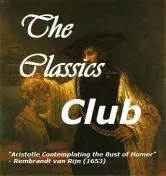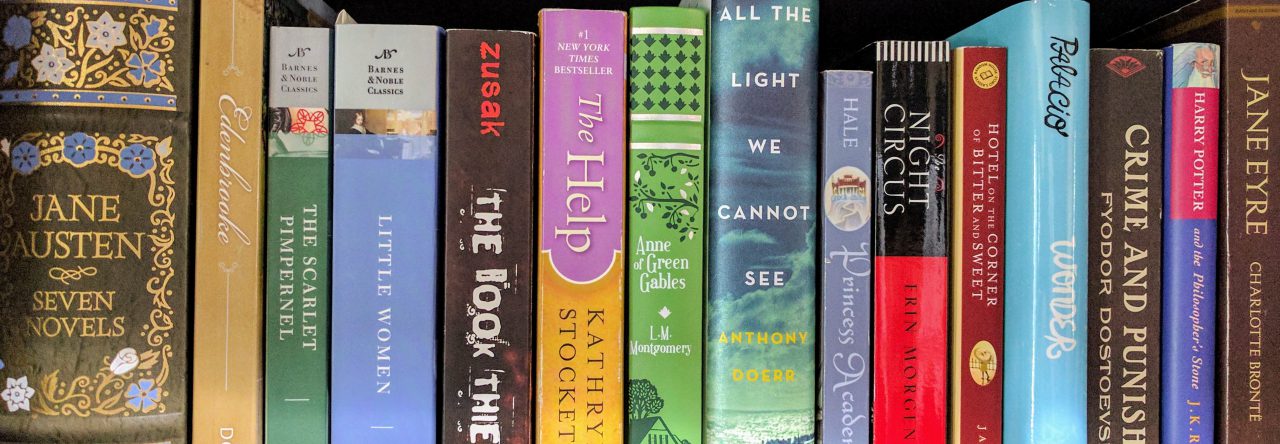Hi y’all!
I am thrilled to share my review of North and South by Elizabeth Gaskell. This is the first time I have read this classic novel about contrasting life in the English Southern countryside and the growing Northern manufacturing towns. I have seen the BBC adaptation a few times and love it! Finally, it was the right time to read this book. I was blown away. I was captivated by this story from start to finish!
Initial Thoughts:
- How has it taken me this long to read this brilliant classic? I don’t have a good reason for the delay, but I am so glad I finally read this one!
- My reading experience with this book is difficult to describe. The first third was hard to get invested in for me. Perhaps because it was somber and a long, somewhat depressing anticipation of departure. But once we meet the characters in Milton, I was hooked. It’s been a while since I was this hooked on a classic. And it felt good to want to read all the time.
- Just a few thoughts about the BBC adaptation starring Daniela Denby-Ashe and Richard Armitage. These two are absolutely brilliant as the leading characters. I think they capture the personalities and interactions of these characters beautifully. The supporting cast is equally fantastic. Go binge watch the 4 part miniseries on Netflix this weekend. You’re welcome 🙂

According to Goodreads, “Written at the request of Charles Dickens, North and South is a book about rebellion; it poses fundamental questions about the nature of social authority and obedience. Gaskell expertly blends individual feeling with social concern, and her heroine, Margaret Hale, is one of the most original creations of Victorian literature.
When Margaret Hale’s father leaves the Church in a crisis of conscience she is forced to leave her comfortable home in the tranquil countryside of Hampshire and move with her family to the fictional industrial town of Milton in the north of England. Though at first disgusted by her new surroundings, she witnesses the brutality wrought by the Industrial Revolution and becomes aware of the poverty and suffering of the local mill workers. Sympathetic to the poor she makes friends among them and develops a fervent sense of social justice. She clashes with the mill-owner and self-made man, John Thornton, who is contemptuous of his workers. However, their fierce opposition masks a deeper attraction.”
This book centers around Margaret Hale who is one of the most fascinating female protagonists of this time period. She is strong, passionate, tender, and intense. She cares deeply about others, especially her family. She is proud often to a fault. She is kind to those beneath her in station. But not always forgiving to those above her. Her faith is beautiful and subtly complex. Her journey towards understanding the industrial hierarchy of Milton and defending the working class is beautifully written. I was also struck by her transformation through the loss of her family and how her wisdom increased through her love, hard work, and determination. She knows who she is, she embraces it, and she doesn’t let anyone define the world for her.
John Thornton is an equally fascinating character. His strength and work ethic are impeccable. I enjoy the background on his history as a self made man and the way he fairly deals with his workers. He is fair, honest, but also strict and imposing. But I also love his passion and love for Margaret that seems to drive everything that he does. I was rooting for him from the first moment they meet. He seems to be a character of intense polarities. One the one hand, he is driven by his need to survive financially and run a successful business. And on the other, he is nearly obsessed with Margaret and his lofty feelings for her. I love the contrast, and I love this love story.
The relationship between Mr Thornton and Margaret Hale is one of the most underappreciated love stories in literature. Their complex journey towards love and mutual attraction is reminiscent of the great love story between Mr Darcy and Elizabeth Bennett. They begin their acquaintance with several misunderstandings that they must overcome to see each other as they truly are–to see the best in each other. Their relationship is much more than mutual attraction. They talk about politics, business, industrialization, working conditions, workers strikes, and fair wages. They disagree and neither of them will back down. I love that we get inside both their heads as they interact. The contrasting ways they see the world and see each other are flawlessly described by Gaskell’s expert storytelling. Perhaps, ultimately, the difficulty of the journey makes the ending all the more satisfying.
The protagonists are flanked by beautifully developed characters that make the story richer and more compelling. I love the characters in this novel. Bessy Higgins is so sweet and innocent. Nicholas Higgins is an intriguing character for all his changing and development. He is a smart man, but also teachable in the right settings. His developing relationship with Mr Thornton is another favorite. Mr Hale’s journey from faith to doubt and from religion to teaching is interesting. Fredrick Hale’s situation is fascinating, certainly unfair, and provides an interesting contrast to his sister Margaret. Mrs Thornton’s hard personality stands out especially with the differences between her and her son. The contrast of the dynamic Milton characters and the petty, flat London cousins was especially intriguing for me. After all that time in Milton, Margaret grew to appreciate it and the people she met there more than her former friends.
This book gives readers so much to ponder and left me thinking about the ideas it raises long after I finished reading. There are so many interesting themes in this book– discussions of faith, the value and importance of education, love of family, country, and home, what makes a home, and what is right vs wrong. There are complex passages about industrialism–it’s values and faults. We learn about working conditions, the intricacies of strikes, unions, and running a cotton mill. But above all, readers discover the importance of faith and the way truth can be understood from many different perspectives. This is much more than a compelling story. Gaskell offers a complex picture of an important time period that changed the face of England and of the world.
Of course, at the heart of this book is the relationship between the North and South of England. Margaret’s varied experiences in the two places are fascinating as she changes and the landscapes she loves change. There are some long speeches about the wonders and hindrances of the North and South. (Although, sometimes the long debates between Margaret and Mr Thornton are a bit long.) But overall, I found it fascinating to see the way Margaret’s perceptions of the two places change. It was interesting how home changed for her. And how her experiences returning to Helstone years later were not the idyllic experience that she expected. Such a fascinating look at the importance of place.
I cannot say enough positive things about this book. I loved it! Love the ending! Love the movie adaptation! One of the best classics I’ve read in recent years!






This is my 34th classic finished on my list for The Classics Club!
Check out my full list here. For more info on the club, click here.

I definitely agree that their love story was one of the most under appreciated ones of Victorian Lit and yet it is so full of emotions, drama, and is so believable. I loved this novel. I first heard of it through the BBC adaptation and it only (lol) took my seven years to finally get around to reading it. I was a bit apprehensive of it not being readable since it is such an old book, but it was easy to follow and so well written! I just finished Cranford (I will link the review, if interested) and admire Gaskell’s wide variety in her plots and heroines, from the lovable satire that is Cranford to the difficulties of the Industrial Revolution, and I am sure so much more in her other novels, she wrote about it all!
https://elle-alice.blogspot.com/2020/08/the-classic-club-cranford.html
LikeLiked by 1 person
Thanks so much for your comment! I had a similar experience with N&S–I love that BBC adaptation and it took me years to read the novel as well.
Cranford was my first exposure to Gaskell’s writing. I read it in college and really enjoyed it. I aspire to read more Gaskell! 🙂
LikeLike
The places aren’t actually fictional: she just changed the names 🙂 . Milton is my home city of Manchester, (I don’t know why she changes the name, because she doesn’t in Mary Barton!), which is why I have mixed feelings about this book, and Cranford is Knutsford, about 20 miles away. There was a TV adaptation of Wives and Daughters … I feel like it was only a few years ago, but Google says it was in 1999. It was very good, if you can find it anywhere to watch. Her house is still here, and the chapel where her husband was the minister’s still going, although it moved a few years ago.
LikeLiked by 1 person
Thanks so much for this awesome info! I had heard that she based N&S on Manchester–how cool that it’s your home city! I really want to read more Gaskell after reading this and Cranford. Will have to check out that adaptation as well. Thanks!
LikeLike
Pingback: June Wrap-Up and July TBR – greenish bookshelf
I read this in college and enjoyed revisiting the novel through your review. Thanks.
LikeLiked by 1 person
Thanks so much, Joyce! I appreciate you reading 🙂
LikeLiked by 1 person
Great review! Elizabeth Gaskell is an author I’ve neglected and it sounds as if I should put that right soon! I love when a book gives you some insight into the world the people were living in, and if Dickens thought she was worth encouraging then that’s a good enough recommendation for me… 😀
LikeLiked by 1 person
Thank you! I agree! Gaskell really does a beautiful job of bringing readers into her time. And haha yes–Dickens; opinion is a great recommendation! I need to read more Dickens myself….
LikeLiked by 1 person
This sounds great! I’m definitely looking for it now (:
LikeLiked by 1 person
I’m so glad! Hope you enjoy it.
LikeLiked by 1 person
I loved reading this review, and couldn’t agree more that this is an incredibly underrated book – I don’t understand why it’s not at least as popular as some of Austen’s works. Have you read anything else by Elizabeth Gaskell yet? 🙂
LikeLiked by 1 person
Thank you!! Yes, totally underrated. I’ve read excerpts from Cranford in college. But nothing else yet. Do you recommend anything in particular by Gaskell? I’d love to read more!
LikeLiked by 1 person
Sadly I can’t recommend anything personally yet, I’ve never read anything else by her either I’ve heard Mary Barton is a good one, but go with the one that sounds best to you! 🙂
I’ve heard Mary Barton is a good one, but go with the one that sounds best to you! 🙂
LikeLiked by 1 person
We both have some reading to do! 😉
I’ve heard Mary Barton is good as well–and I hear good things about Wives and Daughters. I’ll have to let you know which I decide on. 🙂
LikeLiked by 1 person
Yes 🙂
LikeLiked by 1 person
This is one of my favorite books of all time, I’m so glad you enjoyed!!
LikeLiked by 1 person
That’s awesome! It’s one of my new favorites too 🙂
LikeLike
Thank You for the review. I have not read “North and South”, but it sounds like my kind of book. It ill be added to my list for future reading.
Marilyn
LikeLiked by 1 person
Thank you for reading, Marilyn! It’s a fantastic classic read. I highly recommend it! 🙂
LikeLike